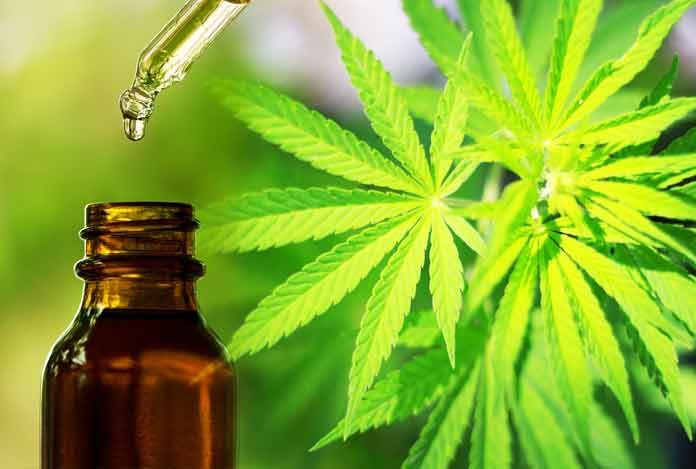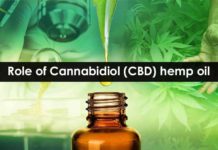
The fact whether CBD is legalized is a popular and debatable topic. Cannabidiol is used for health purposes. It has some health benefits, but there are also risks associated with it.
Cannabis contains around 113 potential ingredients or chemical compounds, known as cannabinoids. Two very prominent cannabinoids are tetrahydrocannabinol (THC) and Cannabidiol (CBD).
There are a variety of strains of the cannabis plant. One of the strains is marijuana, which contains THC. THC is the compound, which causes the feeling of high, i.e.., responsible for the mind-altering effects of marijuana. The strain that is generally and legally used to make CBD oil is hemp. A plant is considered legal only if it contains 0.3% or less of THC.
THC has mind-altering effects and creates a sensation of euphoria. This is because THC attaches itself to CB1 receptors present in the brain. This changes the functioning of the brain and gives a feeling of high. On the other hand, CBD does not attach to the CB1 receptors. So same psychoactive effect is not observed in CBD as in the case of THC. In fact, CBD has medicinal benefits and may work as a mild antidepressant.
CBD is one of the ingredients found in marijuana and is not psychoactive. Laws have been passed, allowing the use of CBD extract; generally, in the form of oil. This has very little THC and it is often used in the treatment of epilepsy or seizure in children, who are terminally ill.
As per the U.S. Federal and State laws, the medical use of cannabis and cannabidiol are at loggerheads, and it is only causing confusion among the patients and health care providers. As of 2017 around half of the states have banned cannabidiol. Around 17 states allow products high in cannabidiol and low in THC. Most of these products are sold over the internet and in dispensaries. However, these products have not been approved by the FDA.
There is a growing interest in cultivating the hemp variety of cannabis, not only in the U.S., but other parts of the world. Only specific varieties of hemp may be grown in Europe and Canada.
CBD is available as a dietary supplement in the U.S., but it is not found at most retail shops. Technically, drugs must be proven safe, but dietary supplements are considered safe until proven otherwise. So, drugs have to be tested for their safety and efficacy, whereas supplements are not.

According to FDA, cannabidiol is a new drug that is not yet approved for any treatment, and research is still going on. Despite FDA saying that it cannot be sold as a dietary supplement, CBD is widely available as a supplement in parts of the U.S. As of the present scenario, it is possible to purchase CBD supplements.
The U.S. Drug Enforcement Administration (DEA) has reiterated that CBD is an illegal substance, similar to other marijuana substance. However, some states have given a green signal to medical and recreational marijuana. Products that have become mainstream are CBD oils and other products containing CBD. DEA has stated that all cannabis extracts, with no exception to CBD, are Schedule 1 substances – drugs that are accepted as having no medical use and have a great potential for abuse.
According to U.S. Federal law, if the content of THC is less than 0.3%, then it is considered legal for academic and educational purposes. The Agricultural Act of 2014 was signed in by the then President Barack Obama, whose section “Legitimacy of Industrial Hemp Research” defines hemp as distinct from marijuana. This gives authorization to institutes of higher education to conduct research.
Have you ever given a thought to the point why hemp lotion is considered legal, but smoking weed is not! It is all about the THC levels.
CBD laws differ from state to state in the U.S. Recently, 16 states have passed laws legalizing the use and consumption of CBD for specific conditions but not cannabis products containing high levels of THC.

Even in states with CBD legal protections, the substance is considered illegal by DEA. Six states – Idaho, South Dakota, Kansas, West Virginia, Nebraska and Indiana completely consider anything related to cannabis as illegal. Most states with CBD laws allow possession, but ban dispensaries, cultivation at home and other supply infrastructure. What we are trying to say is registered patients can have and use it, but cannot obtain it legally. For example, a law was passed in 2015 in Georgia that legalized possession of about 20 ounces of CBD for people with conditions like multiple sclerosis (MS) and seizure disorders. However, there are no dispensaries or supply infrastructure and producers of CBD products.
Of late, Georgian legislature passed a compromise law that has listed some diseases that can be treated with CBD. These include AIDS, Autism and Tourette’s syndrome. This is permissible only if CBD does not have more than 5% THC.
Alabama allows possession of CBD for qualifying patients via a clinical trial program at the University of Alabama. No legal protection for the production or distribution have been carved out.
In the six states mentioned above that do not have laws regarding CBD or medical marijuana, possession of CBD is punishable; theoretically, by arrest. Practically, selling CBD comes with greater risk than possessing it.
If you are a resident of the U.S., cannabidiol produced by industrial hemp is legal and can be consumed. Also, if you acquire cannabidiol from medical marijuana, you should be in a state, where marijuana is legalized.
Recent studies show that CBD might have no serious side effects. Until proven otherwise, it is legally permissible, and the legal status will continue to remain safe for the coming years. So, one can safely consume CBD without worry as long as it contains only a small amount of THC.










